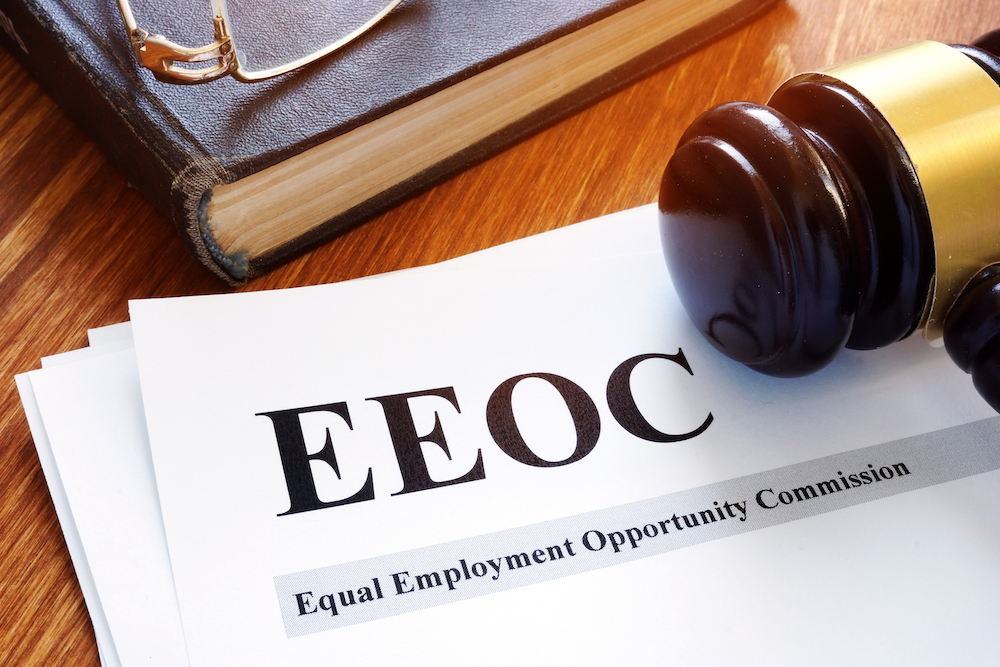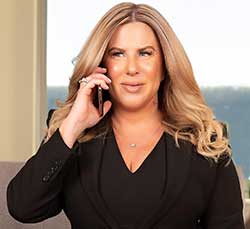White Plains FMLA Lawyer
Paid and Unpaid Leave Entitlements for New York Employees
Many employees in the state of New York are eligible for paid leave under New York’s short-term disability law and paid family leave law, as well as unpaid leave under the federal Family Medical Leave Act (FMLA). These laws were enacted to help employees balance their individual health needs – as well as the needs of their family – with the ever-increasing demands of the American workplace. Not only do the New York state and federal leave laws promote family stability, but they provide a level of economic security which, one can argue, protects the very fabric of the American family. If you feel your rights have been violated, speak with an FMLA Lawyer now.
While this article focuses on the FMLA, not everyone is eligible for its benefits. In New York, employees that are ineligible for protections under FMLA to take job-protected leave may be eligible for short-term disability benefits or paid leave benefits as a result of certain family situations. In contrast to the federal FMLA, which only covers unpaid leave, New York’s short-term disability and paid family leave requirements cover a portion of an employee’s salary. The short-term disability coverage is available to employees who are dealing with an out-of-work injury or illness, while the Paid Family Leave law covers employees who must take leave to care for a newborn or adopted child, to care for a family member with a serious health condition, or because of the military deployment of a family member abroad.
What Are Employees Entitled to Under the Family and Medical Leave Act?
The FMLA entitles eligible employees to take up to twelve weeks of unpaid leave from their jobs because of a serious health condition, for the birth or adoption of a child, or to care for a child, spouse, or parent who has a serious health condition. This federal statute only applies to employees who work for a company with at least 50 employees located within a 75-mile radius, who have worked for the company for at least a year, and who have clocked a minimum of 1,250 hours during the previous twelve months. Under the FMLA, employees are entitled to a maximum of twelve weeks’ leave in any twelve-month period.
Interference v. Retaliation Claims
When an employer denies its employees their rights to FMLA leave – or discriminates or retaliates against its employees because they actually took their FMLA leave – the employees typically have the right to sue for damages and reinstatement of their jobs. This is a means of holding their employers liable for interfering with or preventing them from taking FMLA to leave. To win on a claim of FMLA interference, employees must prove that they were an “eligible employee” under FMLA in terms of the length of time that they worked at the company, the number of hours that they worked in the prior twelve months since leave was last taken, as well as the size of the employer’s operations within the 75-mile radius of their workplace. Employees must also prove that they provided notice to the employer of their intention to take leave. In order to prevail on an FMLA claim, the employer must have actually denied the requested FMLA leave, or when considered objectively, the employer took actions that would discourage any reasonable employee from taking FMLA to leave.
In addition to FMLA interference, employers can be held liable for retaliation. Retaliation occurs when an employer takes certain adverse actions against the employee because he or she reported an FMLA violation to human resources or a company manager, or filed a lawsuit with the federal courts. Adverse employment actions include any type of employment action that is taken to dissuade a reasonable employee in the same position from exercising their rights under FMLA. Examples of FMLA-related adverse employment actions include negative performance reviews, demotion, or discharge. While there is a wide range of actions that qualify as an adverse employment action, it is important to understand that a simple lack of manners, petty slights by one employee to another, or minor annoyances suffered by the employee, are not considered adverse employment actions under the law.
A retaliation claim requires that the employees establish that they requested FMLA leave, that they are qualified for their position, that they suffered an adverse employment action such as a demotion or termination, and that an inference can be made from the circumstances that the adverse employment action is related to the employee’s attempt to exercise their FMLA rights. The timing of the adverse job action taken by the employer, if taken soon after a request for or taking of the FMLA leave, can result in an inference that the adverse action by the employer was related to the employee’s exercise of their FMLA rights. However, the courts in New York have held that a lapse of time beyond two months may break this causal inference.
No Excuse for Poor Performance
While employers are prohibited from retaliating against their employees for taking FMLA leave, FMLA does not protect employees from legitimate disciplinary action by their employers if their performance is lacking in some manner unrelated to FMLA leave. On the other hand, no matter how bad the employee’s performance, if the employee’s decision to request or take FMLA leave is just one motivating factor, in taking the adverse employment action the employer will be held liable for violating the law.
If you believe your employer is violating your right to paid or unpaid family leave, speak with an FMLA lawyer today for a free consultation.

Claudia Pollak
Claudia Pollak, Esq. is an experienced Westchester and NYC-based employment lawyer representing employees facing discrimination, retaliation or wrongful termination because of their race, disability, pregnancy, sexual orientation, gender, or other protected characteristic. She also advises on executive severance agreements and restrictive covenants. Call her at 914-LAW-9111 (914-529-9111) for a free consultation.
Employment Discrimination
Employment Discrimination
Employees in Westchester County and other parts of New York state are protected from discrimination in employment based on a number of personal characteristics.
Sexual Harassment
Sexual Harassment
Sexual harassment at the workplace has always existed, but the #metoo movement has brought this ugly secret out into the glaring light of day.
Disability Discrimination
Disability Discrimination
Being disabled can impact individuals in several important ways. For a great many Americans, however, it does not prevent them from working.
Breach of Executive Employment Agreement
Breach of Executive Employment Agreement
Despite the existence of an enforceable contract, employers sometimes terminate an executive’s employment before the end of term, and in violation of the employment agreement.
Gender Discrimination
Gender Discrimination
There are many types of gender discrimination occurring in the workplace, including discrimination based on sexual orientation, pregnancy, or transgender or non-binary status.
Hostile Work Environment
Hostile Work Environment
Some of our most vulnerable populations are experiencing increasingly stressful employment situations. In fact, many workers in America (up to 1 in 5) feel they work in a hostile or abusive work environment.
Racial Discrimination
Racial Discrimination
While many businesses have openly acknowledged the problems of discrimination and inequity facing black workers in America as a result of the Black Lives Matter movement, racial discrimination still regularly occurs in the workplace.
Severance Agreements
Severance Agreements
Whether your position is being eliminated in corporate downsizing, or you are getting laid off or fired for another reason, at some point in your life you may find yourself reviewing a severance agreement.
Pregnancy Discrimination
Pregnancy Discrimination
The last thing you need when you’re starting a family – or growing one – is financial uncertainty or the stress and anxiety that comes from becoming the target of discriminatory treatment at work because of your pregnancy.
New York Equal Pay Law
New York Equal Pay Law
New York Labor Law §194, requires that employees of a particular establishment be paid a wage that is equivalent to the wages paid to employees of the opposite sex, or of a different race or sexual orientation, or who are members of any other class of employees.
GLOWING CLIENT REVIEWS
She puts the needs of her clients first.
Amanda Moody
Very knowledgeable lawyer. Very commendable.
Thomas Sauer
I connected with Claudia for assistance negotiating an employment agreement. Claudia was very responsive right from the start. Once we agreed to move forward, she worked over a weekend and we had calls on a Saturday and Sunday to be in a position to respond by Monday. Her detailed and thoughtful review was extremely valuable to me. She explained all of her rationale and provided me with a detailed response which I used. I am so glad I worked with Claudia and would highly recommend her services!
Salvatore Sama
I wish I could give her a million stars.
Lisa Smith
Its hard to find an attorney who cares about their clients. Well I did Her name is Claudia Pollack she was very fair with me. She provided the service I have never have gotten from any attorney. She is knowledgeable about the law and she explained to me every step of the way what she was doing and why. She had patient’s with me, pretty much held my hand and explained all my options.When Claudia says she is going to do something she does. Her communication level was super.Claudia whordked hard and fast and got the job done.Having hired Claudi I was able the have a lot less stress and most of all slept very well at night knowing that she was on my side
Steven Katz
![]()
I consider myself fortunate to have been introduced to Claudia, who performed flawlessly on my behalf in extremely difficult and trying conditions. As a senior level executive, my expectations for professionalism and service delivery are high and I can honestly say that Claudia went far above and beyond my expectations to represent my best interests. She is tenacious and fights for her clients rather than pursuing the path of least resistance. Her case preparation was extremely thorough and diligent. When combined with her experience and high level of competence in employment law, she is a formidable adversary to any employer, large or small, who exercises digressions in employment tactics. It is without reservation that I recommend Claudia’s services to handle any employment matter, large or small, that requires legal finesse.
Richard Hayes
TESTIMONIALS
Smart, knowledgeable and accessible. Claudia has expertly represented me since 2014 with several successful contracts negotiations.
Very knowledgable lawyer, very commendable.
She puts the needs of her clients first.
I wish I could give her a million stars.




